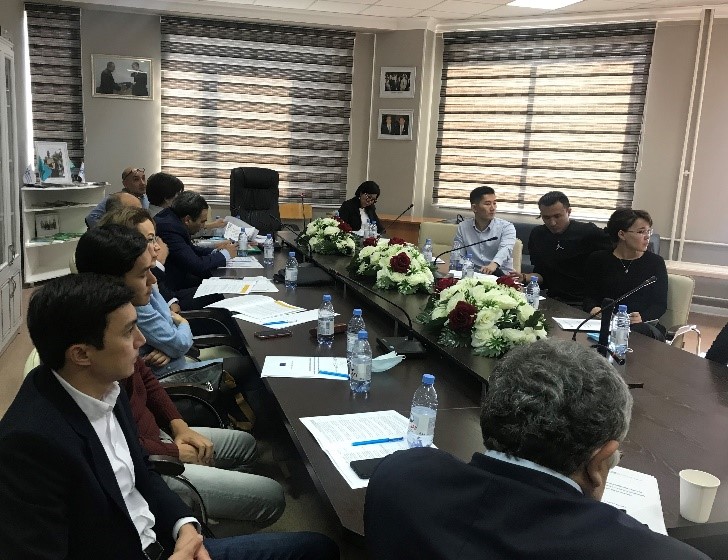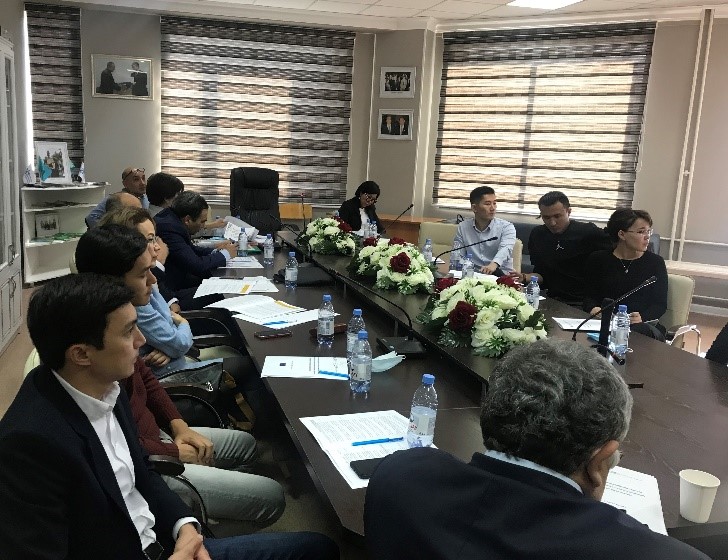Seminar on Enterprises’ Internal Compliance Policy of Strategic Trade Control at the L. N. Gumilyov Eurasian National University

On October 8, 2021, the L. N. Gumilyov Eurasian National University (ENU) hosted the Seminar on Enterprises’ Internal Compliance Policy (ICP) of Strategic Trade Control (STC) in collaboration with the Central Asian Institute for Development Studies (CAIDS) with the support of the International Science and Technology Center (ISTC) within the framework of grant funding from the European Union.
The event took place with the participation of scientists, experts, as well as specialists of various profiles representing the Committee for Industrial Development of the Ministry of Industry and Infrastructure Development of the Republic of Kazakhstan, the Center for the Development of Trade Policy QazTrade, the Kazakhstan Center for Industry and Export QazIndustry, the Association of Machine Builders of Kazakhstan, the Center for Export Control of Kyrgyzstan, among others.
During the seminar, there were several presentations on current problems and trends in policy, regulations, law enforcement practice, legislation, and international experience in the field of Strategic Trade Control, as well as discussions on the prospects for the introduction of ICP in companies of the Republic of Kazakhstan.
Among the speakers of the seminar there were Dr. Jean Pascal Zanders, specializing in armament and disarmament issues, Professor of the University of Liege (Belgium) Dr. Quentin Michel, and the Professor of Al-Farabi Kazakh National University, Tamara Tazhibayeva, one of the main contributors to the development of the Kazakhstani standard of ICP.
During the event, Dr. Jean-Pascal Zanders and Professor Dr. Quentin Michel shared their knowledge and experience related to research and education on STC. Professor Zanders presented the concept of "dual-use", outlined the main aspects of dual-use technology management at the international and national levels. Professor Dr. Michel presented the topic of the main responsibilities of the stakeholders involved in STC. Professor Tamara Tazhibayeva introduced to the audience the main models of the ICP of export control for the nuclear, chemical, biological and radiological materials. Finally, the Director of CAIDS, Askhat Nametsha, in his presentation emphasized the goals and advantages of implementing an In-house control system for enterprises in Kazakhstan.
During the seminar, representatives of government agencies and business noted the importance of enterprises ICP program to ensure compliance with transactions and prevent situations of non-compliance with trade rules that could disrupt business operations and access to important markets and technologies. At the end of the seminar, Dr. Maria J. Espona, Targeted Initiative CBRN Export Control Dual-Use Materials and Technologies Project manager, made some concluding remarks.


